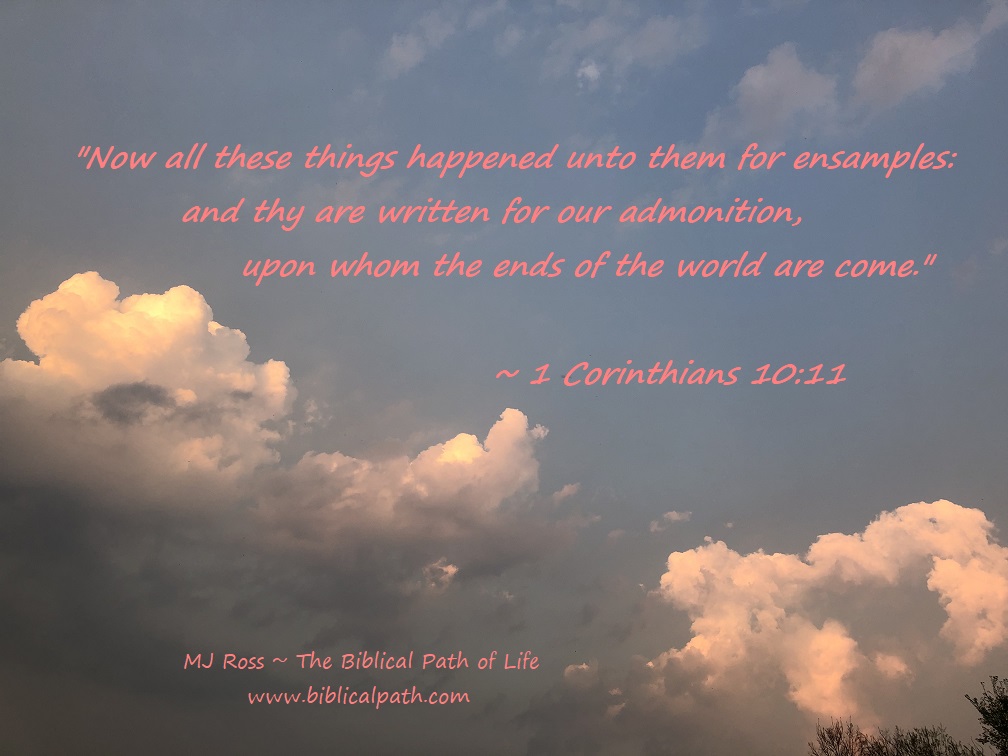
“Now all these things happened unto them for ensamples: and they are written for our admonition, upon whom the ends of the world are come.”
1 Corinthians 10:11
There are so many examples in the Bible of which we should take notice. “Now all these things happened unto them for ensamples: and they are written for our admonition, upon whom the ends of the world are come” (1 Corinthians 10:11). They are there to remind us of what happens when we either choose to obey God’s Word or choose our own path. Throughout God’s Word, one can learn from mighty examples. There is one such event in 2 Kings chapter one.
Ahaziah, wicked King Ahab’s son, became king of Israel. We find that Ahaziah fell through a lattice in his chamber and was sick (injured). He sent messengers to inquire of Baalzebub, the god of Ekron, to see whether he would recover. Although Ahaziah was a king of God’s people, he sought word from a false god of an enemy nation to find what would happen to him.
As the king’s messengers were on their way, the angel of the Lord appeared to Elijah, the prophet of God. Elijah was given a word for the king’s messenger to take back to the king. Elijah said, “Is it not because there is not a God in Israel, that ye go to enquire of Baalzebub the god of Ekron?” (2 Kings 1:3b). Why had King Ahaziah inquired of a false god from an enemy nation and not even considered asking of the God in Israel? Read Elijah’s message for the king. “Now therefore thus saith the LORD, Thou shalt not come down from that bed on which thou art gone up, but shalt surely die. And Elijah departed” (2 Kings 1:4). The message declared that the king would not recover, but he would die — because he sought an answer from a false god instead of the Lord. The messenger returned to the king and delivered the words from Elijah. The king then proceeded to send captains and soldiers to try and take Elijah, but they failed (see 2 Kings 1:9-15).
When the angel of the Lord told Elijah to go with the next captain and soldiers, Elijah went to the king. He repeated the same message to the king as before: because the king had not inquired of the Lord, but of the false god, Baalzebub the god of Ekron, the king would not get up off his bed but would surely die. What happened? “So he died according to the word of the LORD which Elijah had spoken …” (2 Kings 1:17a).
Aside from the fact that King Ahaziah inquired an answer from a false god, he asked the wrong question. He asked if he was going to die. He should have asked what he needed to do to be well. The question of which we need the answer is not if, or when, we will die — we know what the Bible teaches. “And as it is appointed unto men once to die …” (Hebrews 9:27a). Everyone will die sometime (unless of course Jesus returns first!). Nevertheless, see the important part of that same verse: “…but after this the judgment”. The part we should be concerned with is if we are “well” (for the judgment) — whether we will live forever or spend eternity in hell. This is the question we should have answered in our hearts and lives: where will one spend eternity. To spend eternity in heaven is a gift — free; if only we will receive. “For by grace are ye saved through faith; and that not of yourselves: it is the gift of God” (Ephesians 2:8).
Notice that King Ahaziah was probably angry because the message Elijah sent reminded him of the God of Israel. Most people to whom you witness (share the Gospel message) will not want to be reminded of God. When one is reminded of God, there is an awareness of the sin in that life apart from God (“For all have sinned, and come short of the glory of God” Romans 3:23). Does that make it harder for Christians to tell people about Jesus? We can see by Elijah’s response that he feared the God of Israel, not the king of Israel.
Christians should learn so much from this event. King Ahaziah asked the wrong question, and from a false god. Elijah pointed out King Ahaziah’s error. It was the king’s choice to correct his error (his sin) or disregard the sin in his life. We must do the same thing. Each person must look into their own heart and life and ask the question — will I live forever in heaven (because I asked Jesus to forgive my sins, making me well) or spend eternity in hell (for refusing the gift of salvation).That is the question each person should have answered in their hearts and lives. We should then ask our family and friends as well: where will they spend eternity.
Have you asked the wrong question, wondering when and how you will die?
Or
Have you asked the correct question, understanding one day you will stand before God to determine where you will spend eternity?



